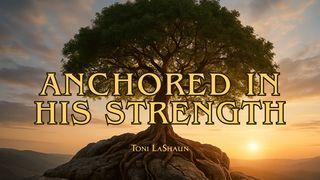Restoring Your Soul - Living a Limitless LifeSample

Understanding Anger (Anger Cycle)
If we’re going to live with a restored soul, we must understand the elements of an anger cycle. Anger often masks deeper emotions, such as fear, hurt, or insecurity. By identifying these primary emotions (any feeling we feel that anger is masking), we can respond thoughtfully rather than react impulsively.
The cycle begins with an event. Immediately, we interpret that event (based on our specific experiences, beliefs, and thoughts), which produces a primary feeling. An inability to identify our errant thought process or primary emotion will lead to an anger response.
Once angry, we express it outwardly as an explosion or inwardly as an implosion, depending on our personality and the dynamics of the event. Once we explode or implode, we cool down and then remain calm until another triggering event happens.
Let’s look at an example of how this cycle works:
You go downstairs and turn your coffee pot on every morning before returning upstairs to shower. One morning, when you reach to pour coffee into your cup, you realize the carafe wasn’t lined up correctly, and there is coffee all over your counter and running down your cupboards.
Although your immediate response may be anger, which results in a verbal explosion of expletives or an internal self-berating, you’ve missed two crucial steps. Before the secondary reaction of anger, there was an interpretation of the events and a primary feeling resulting from that thought process.
The interpretation of the experience depends on the messages you received when you made a mistake in childhood or how many verbally abusive people you’ve encountered along the way in your adulthood. If you believe you’re not allowed to make mistakes, you will feel worthless, like an idiot, and you will react and speak to yourself accordingly. However, if you were allowed to make mistakes and believe you’re okay if you are less than perfect, your response may be to laugh at yourself, clean up the coffee, and even share the experience with colleagues later in the day. The difference between reacting with anger and taking it in stride comes down to our interpretation of the triggering event.
Thankfully, we can break the cycle before we react with anger if we can identify and express our primary feelings — our fear of rejection, inadequacy, or insecurity — or put effort into understanding our interpretation of the situation and changing how we think about the triggering circumstance.
If we react to another human being, we are responsible for self-reflection and becoming aware of the broader context that may have contributed to our outbursts. After considering this, we must re-engage and respectfully convey to them what triggered our reaction, how the misinterpretation led to our overreaction, and apologize if necessary.
We need to learn how to identify our primary feelings and express those as “I feel…” statements and we need to learn to think differently about the circumstances in the first place. We know that God doesn’t want us to react and create more pain for ourselves or those we love, so understanding and attempting to break the cycle is an example of submitting to God’s heart, as well as renewing our minds and healing our emotions.
I Invite You to Ask Yourself:
- What situations cause me to feel angry quickly?
- What is the primary feeling I generally feel beneath your anger? (Hint: For men, it is often fear of failure, abandonment, or rejection, and insecurity or hurt for women).
- How different would the outcome be if I could share my authentic feelings rather than react in anger?
I Invite You to Pray:
Lord, help me to recognize that when I react to a situation, it is because I am interpreting it from my perspective and drawing on my prior experiences. Give me Wisdom to understand how my thinking might be in error and help me connect to my true feelings, which I mask with my reaction of anger. I want to learn how to be slow to react and respond kindly to others. Reveal any deeper wounded places in my heart that need restoration for me to continue my quest to become more like Jesus. Thank you for being patient with me as I continue to heal and grow. In Jesus' Name, Amen.
About this Plan

Do you identify with "the spirit is willing but the flesh is weak?" If so, you're not alone. This 30-day Bible reading plan focuses on how to partner with God to restore our souls. We can renew our minds, submit our wills (submit isn't as scary a word as you might think), and heal our emotions. I invite you to join me in learning to walk more fully in the Spirit, instead of being governed by our flesh. Your limitless life awaits!
More









